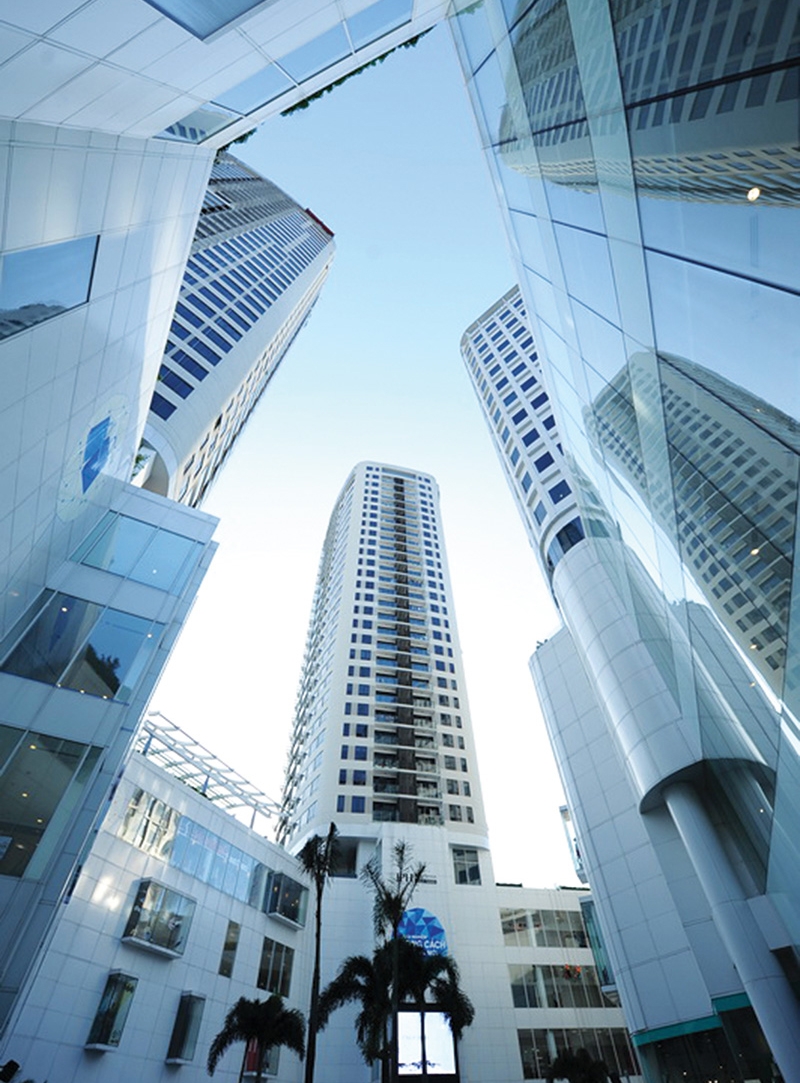Wealth creation amid the coronavirus conundrum
 |
| By Michael Piro COO, Indochina Capital |
As the world is struggling to contain the pandemic, Vietnam has emerged as a bright investment destination with its effective handling of the pandemic. Slowly, but surely, economic activities have crept back to near pre-pandemic levels, and Vietnam currently has the highest forecasted economic growth rate in 2020. Though, with effects of the pandemic still unfolding, what channels should investors interested in Vietnam consider?
With investment, stocks and the equity market usually come first to mind. No foreign restrictions are placed on investment in the Vietnamese stock exchange and the market is yet to reach maturity, implying an opportunity for significant returns. However, market fluctuations happen and the Vietnamese stock exchange is no exception. Vietnam is also relatively prone to changes in regulations, policy shocks and political events, which tend to affect the market almost immediately.
According to the Vietnam Securities Depository, June saw a major influx of newly-opened individual accounts, whose owners were looking to capitalise on the cratering market cause by the pandemic. Inexperienced individual investors, often looking for short term profits, tend to react to rumours with herd mentality, which can cause the market to fluctuate wildly.
Another obstacle is the lack of transparency when seeking information on Vietnamese stocks and companies. Outside of the biggest-cap names, foreign investors often face challenges when attempting to access intimate information that goes beyond desktop research.
Another popular investment channel in Vietnam is gold. Gold prices have consistently hit new pinnacles in 2020, specifically in the second and third quarters, where its price rocketed to an all-time high. This proposition can be very tempting for buyers looking to generate short term profits. However, in August the gold price started to fall sharply, likely due to market correction, decreasing by as much as a sixth of its value in just five days.
Still, the domestic gold price is several million Vietnamese dongs higher than the global price, and the nation does not have an official market for trading this valuable asset, and thus the trading process remains risky.
 |
| Real estate, even in tourism-related sectors, has shown signs of resilience amid a terrible year for the global economy |
The real estate market also saw drawbacks due to the pandemic, most noticeably in the hospitality and tourism-related sectors. Nonetheless, compared to the volatility of equity and gold, real estate has shown signs of resilience despite COVID-19.
An assessment by economist Can Van Luc and his team shows that of the 15 sectors making up 80 per cent of domestic GDP, real estate was one of the eight sectors least impacted by the pandemic. Recent data shows real estate accounted for close to 40 per cent of total merger and acquisition value in the first nine months of 2020, and 90 per cent of Vietnamese millionaires are currently investing in this channel.
 |
| Industrial and office segments are offering decent potential |
Real estate can also produce income on a monthly basis, with more consistency than both gold and stocks. According to an investment advisor, real estate can provide a greater return (more than 10 per cent) with its monthly income when compared to stocks. The rise in value of gold against inflation is usually coupled with a devaluation of the paper currency, which could result in a minimal amount of returns when traded. All the while real estate prices and rental yields tend to improve for property owners if living expenses rise.
The current reduction in interest rates, opportunities from the EU-Vietnam Free Trade Agreement, and overseas Vietnamese returning home to seek shelter are proof that the Vietnam real estate market is en route to recovery, especially when it comes to attracting foreign capital. Vietnamese real estate prices have steadily increased over the last 40 years, without any severe crisis where prices have plummeted without end.
With current tightening of regulations and approval procedures, real estate prices are expected to continue on their upwards trend. For institutional investors, the logistics, industrial, and office sectors are bright investment spots, as new trade agreements encourage growth in manufacturing and the relocation of major corporations’ factories to Vietnam.
Due to the pandemic, the market has been extra volatile. As such, it is critical to align investments with one’s risk appetite, financial goals, and growth strategies to find investment channels meeting return expectations. Diversifying portfolios and a focus on real estate investment could help individuals and institutional investors capture the upside during the current economic slowdown.
What the stars mean:
★ Poor ★ ★ Promising ★★★ Good ★★★★ Very good ★★★★★ Exceptional
- Calling the right shots in the new normal roundtable conference
- VIR Roundtable: five potential groups for investment in new normal
- Roundtable – Calling the right shots in the new normal
- VIR to organise “Calling the right shots in the new normal” roundtable
- Why the blockchain revolution rolls on
Related Contents
Latest News
More News
- Wink Hotels to revolutionise the hotel industry (June 30, 2022 | 10:00)
- Wink Hotels revolutionises new breed of hotels for travellers (June 27, 2022 | 09:49)
- Getting back in the travel groove for 2022 (January 04, 2022 | 10:27)
- Bank and real estate giants team up (April 26, 2021 | 09:51)
- Indochina Kajima commences Phu Yen luxury tourism project (April 05, 2021 | 13:04)
- Foreign investment continues to flow into hospitality market (March 15, 2021 | 11:17)
- Satellite towns with purpose (January 19, 2021 | 11:00)
- Wink Hotels’ first hotel opening in Ho Chi Minh City (January 19, 2021 | 10:59)
- Seizmic shifts in Vietnamese real estate market (November 26, 2020 | 12:34)
- Vietnam’s coasts remain an enticing investment magnet (October 12, 2020 | 09:30)

 Tag:
Tag:




















 Mobile Version
Mobile Version